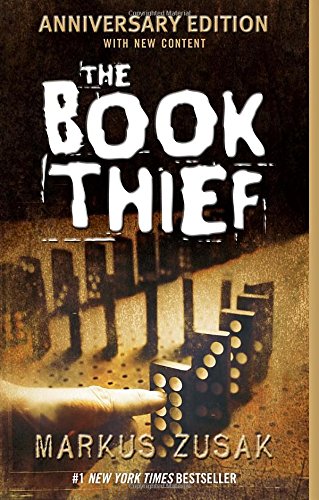All Nonfiction
- Bullying
- Books
- Academic
- Author Interviews
- Celebrity interviews
- College Articles
- College Essays
- Educator of the Year
- Heroes
- Interviews
- Memoir
- Personal Experience
- Sports
- Travel & Culture
All Opinions
- Bullying
- Current Events / Politics
- Discrimination
- Drugs / Alcohol / Smoking
- Entertainment / Celebrities
- Environment
- Love / Relationships
- Movies / Music / TV
- Pop Culture / Trends
- School / College
- Social Issues / Civics
- Spirituality / Religion
- Sports / Hobbies
All Hot Topics
- Bullying
- Community Service
- Environment
- Health
- Letters to the Editor
- Pride & Prejudice
- What Matters
- Back
Summer Guide
- Program Links
- Program Reviews
- Back
College Guide
- College Links
- College Reviews
- College Essays
- College Articles
- Back
The Book Thief by Markus Zusak
The novel was written by the Australian author Markus Zusak. His parents had both witnessed the Hamburg bombing and he was impressed by his parents’ descriptions of it. He became determined to write them into his writings, and he did. In the novel The Book Thief, Markus had described Nazi Germany’s leader’s violent acts and the pain their actions caused innocent civilians.
What is unique about this novel is that it is described from the perspective of Death. But, he is not the Death that we used to know—he has sympathy, love and cares for the dead. From his point of view, we see the life of our little “book thief”, Liesel Miminger. She lost her mother and little brother when she was very young, and is adopted by a German family in Hubermann. During her time in foster care, she learns to read and finds the beauty of this world impacted by letters. In that period of time, literature is essentially eliminated, however Liesel makes a change. In the shelter, she reads books to her neighbours and totally changes their minds. Fear and sadness dissipate due to the letters from Liesel. In those darkest days of people’s lives, it was those books that kept people from being who they are. “I am haunted by humans.” Death is greatly impressed by Liesel’s goodwill and begins to consider humanity.
Other characters besides Liesel add to the plot and her goal of spreading the word of books to others. For one, Hans Hubermann teaches Liesel how to read, and another person who has a great impact on her is Max Vandnburg, a Jewish fist-fighter. His father saves Hans’ life, so Hubermann gives him their basement as a refuge. Furthermore, he has written two books for Liesel that has been a comfort for the soul. For Liesel, those two books are amazing, it opens the gate of writing for Liesel. Considering that, Max is her mentor, even though he was “just” a Jew.
To delve further into the plot and further into Liesel’s closest companion can be described as, “Like most misery, it started with apparent happiness.” In the happiest of Liesel’s days, it is Rudy Steiner who is always by her side. They share the food they steal in the garden. They go to the major’s house, sneak into it and get the books out. They go through the same desperation of losing their loves. They experience the same excitement of adolescence, although Liesel has just noticed her feelings towards Rudy only after he dies. Her times with Ruby are her best and sweetest memories of her life.
At the end of the piece, we realized that war is portrayed as the cruelest thing in all of the world. It steals things from people, no matter what. In the end, it wipes off everything in the small town where Liesel lives. The country of Germany, at that time, is literally hell. In the wreckage, however, occurs a halo. And Liesel is the angel savior of the wreck. More specifically, it is her words, her book, her life. Would she have foreseen her thirteen? Well, perhaps no. She did not and could not escape but she did for a time through books.
Similar Articles
JOIN THE DISCUSSION
This article has 0 comments.

